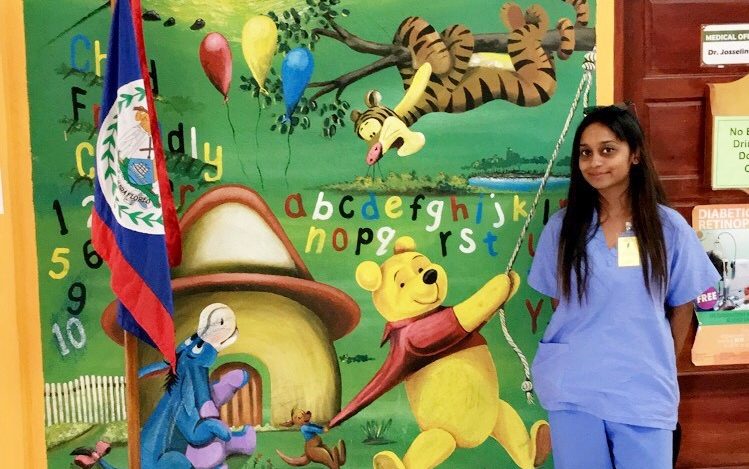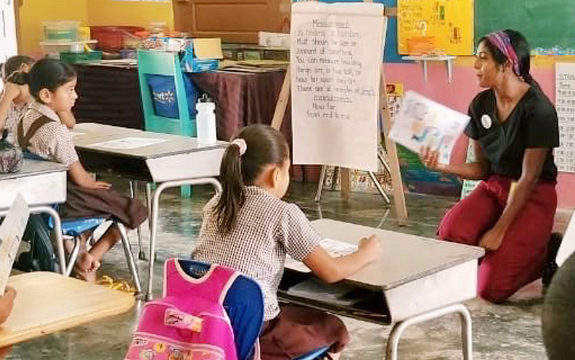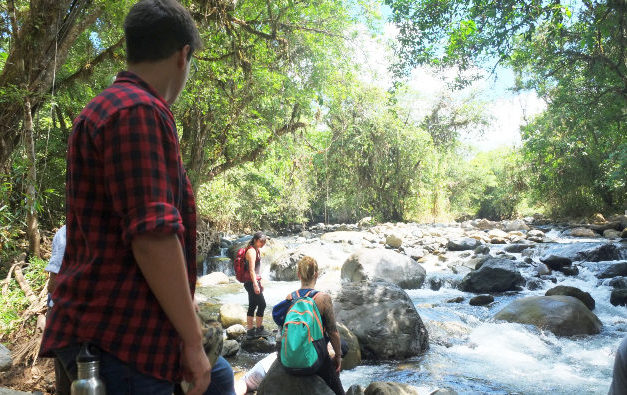Students in the School of Global Health can engage in a range of Experiential Education (EE) opportunities - applied, practical experiences in which they are guided to use the knowledge learned in the program and actively engage in a process of reflection. Whether inside or outside the classroom, these experiences provide opportunities for students to develop skills and capacity in global health practice, and hone relevant employability skills, such as communication, teamwork, and problem solving.



Collaborative course projects based on real-world scenarios
Global Health courses engage students in hands-on projects and experiences that allow them to apply their knowledge in real-world contexts or engage with global health organizations and professionals.
These are a few examples of how students have engaged in experiential learning in different courses:
- Students in the Introduction to Global Environmental Health course learned how to undertake an air quality assessment using monitoring equipment with the Global & Environmental Health Lab.
- Students in the Agents of Change in a Global World course developed their identity as Agents of Change by collaborating on a group project that proposed solutions to a global health issue. To inform their project, students met with and engaged with health sector professionals who had expertise in the field.
- In the Policy and Program Evaluation in Global Health course, students gained practical skills by developing a program evaluation based on a real program offered by a health organization.
- In the Promoting Global Health course, students got creative by developing health promotion videos designed to communicate information about global health diseases in an accessible way to a general audience.
International engagement
The Global Health program facilitates opportunities for students to expand their learning internationally. For example:
Globally-Networked Learning is an innovative approach that engages students in collaborative projects with peers in universities across the world. Students in the Global Health Policy: Power and Politics course worked on a group project with students at Fulde University in Germany, engaging in intercultural dialogue and sharing of lived experiences.
Exchange opportunities allow students to take courses at international partner institutions such as King’s College in England and Fulda University in Germany.
Study abroad programs provide unique opportunities for students to be immersed at the Las Nubes York University Campus in Costa Rica. Additional opportunities are available through York International.
Practicum
Students in the Specialized Honours program gain valuable work experience by completing a practicum in their fourth year at a health-related organization, ranging from community-based organizations, to hospitals, research institutions, NGOs and multilateral organizations, in Canada or internationally.
Learn more about the Integrated Global Health Practicum
Research
Whether through an independent study course or working as a research assistant, there are many research opportunities for students to work closely with professors and researchers on global health projects and initiatives to gain valuable career-focused experience and skills.
